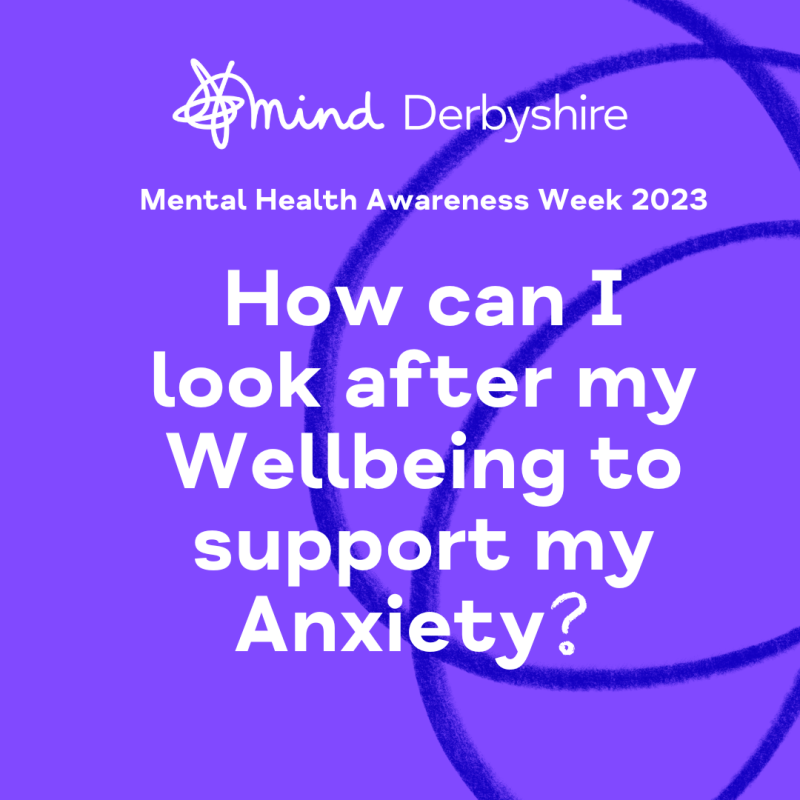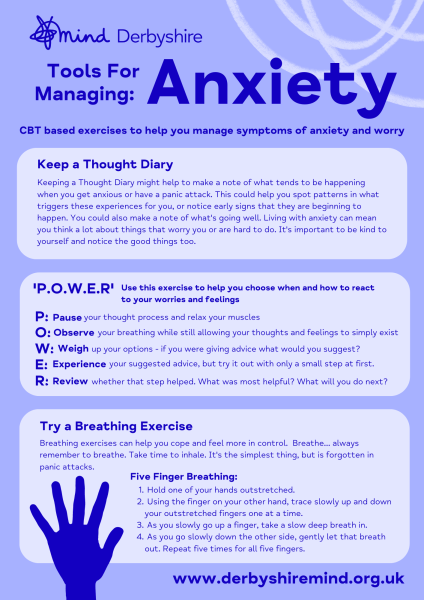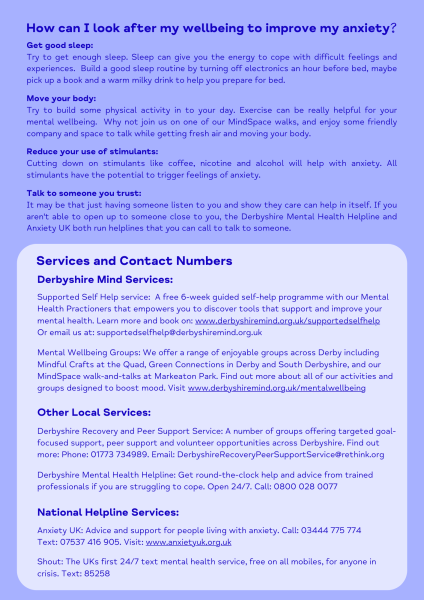MHAW23: How can I look after my wellbeing to support my anxiety?
15 May 2023

Talk to someone you trust
It may be that just having someone listen to you and show they care can help in itself. If you aren’t able to open up to someone close to you, the Samaritans and Anxiety UK both run helplines that you can call to talk to someone. Social support can provide comfort, understanding, and practical assistance.
Try to manage your worries
It can be helpful to try different ways of addressing these worries. For example, you could:
Set aside a specific time to focus on your worries – so you can reassure yourself you haven’t forgotten to think about them. Some people find it helps to set a timer.
Write down your worries and keep them in a particular place – for example, you could write them in a notebook, or on pieces of paper you put in an envelope or jar.
Look after your physical health
Sleep can give you the energy to cope with difficult feelings and experiences. Sleep deprivation can contribute to anxiety symptoms. Make sure to get enough sleep and establish a regular sleep schedule.
Think about your diet. Eating regularly and keeping your blood sugar stable can make a difference to your mood and energy levels. Eating a balanced and nutritious diet can help improve your mood and reduce anxiety symptoms.
Try to do some physical activity. Exercise regularly: Physical activity is a natural stress reliever that can help reduce anxiety symptoms. It also helps to improve overall health and well-being.
Start small if you need to and build up. Any physical activity is better than none. Try spending 5 minutes outside or jump 5 times after you wake up in the morning. It can also make a big difference if you try to cut down on stimulants like coffee, nicotine and alcohol.
Try breathing exercises
Breathing exercises can help you cope and feel more in control. Breathe… always remember to breathe. Take time to inhale. It’s the simplest thing, but is forgotten in panic attacks. Meditation is also an effective technique to calm your mind and reduce anxiety.
Keep a diary
It might help to make a note of what happens when you get anxious or have a panic attack. This could help you spot patterns in what triggers these experiences for you, or notice early signs that they are beginning to happen. You could also make a note of what’s going well. Living with anxiety can mean you think a lot about things that worry you or are hard to do. It’s important to be kind to yourself and notice the good things too.
Practice self-care
Engage in activities that you enjoy, such as reading, listening to music, or taking a relaxing bath. It is important to prioritise self-care to manage anxiety symptoms.
Consider therapy
Therapy can provide effective tools and strategies to manage anxiety symptoms. Cognitive-behavioural therapy (CBT) is a commonly used therapy for anxiety disorders that focuses on identifying and changing negative thought patterns.
To Download a PDF version of the Derbyshire Mind Anxiety flyer, please click on the link below:
For one to one support for symptoms of anxiety, click here to find out more about our Supported Self Help Service:
Supported Self Help – Derbyshire Mind
To read more about the symptoms of Anxiety, click here to read our Blog:
MHAW23: What is Anxiety and when do we experience it? – Derbyshire Mind

